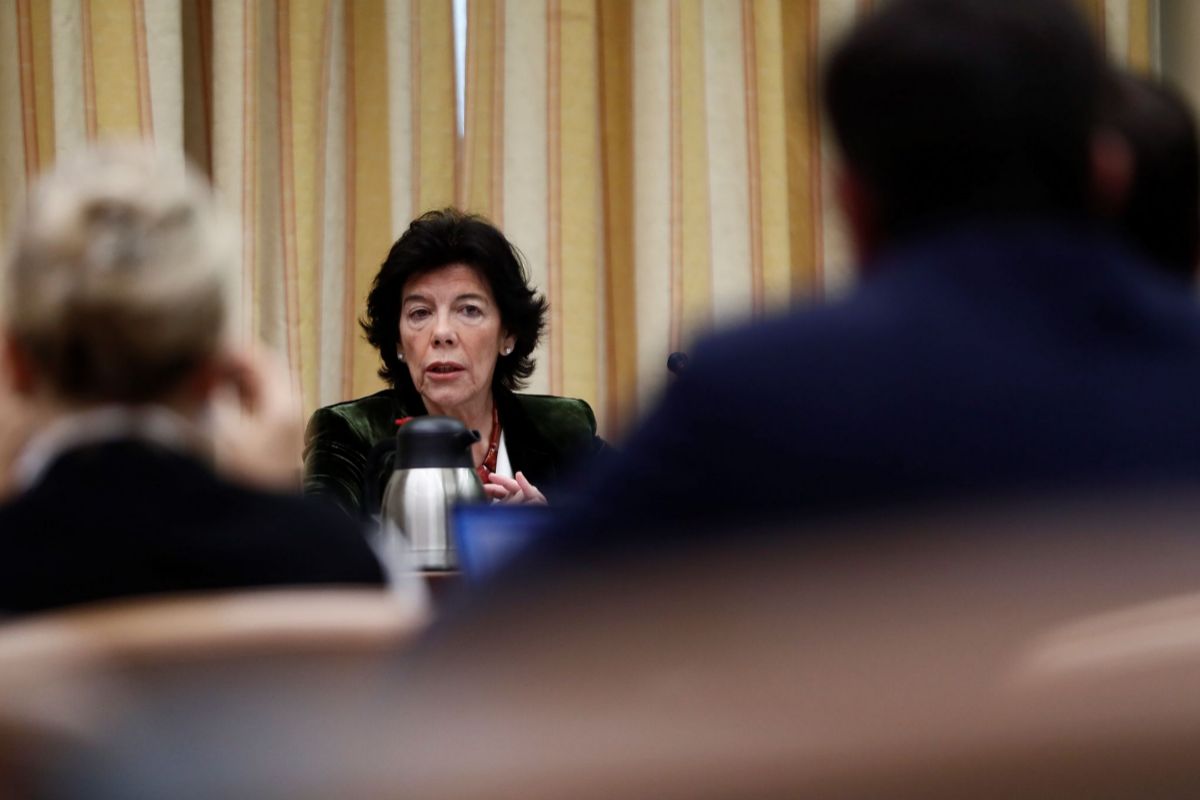The Minister of Education, Isabel Celaá , intends to reform the teaching career to improve the quality of education. To do this, he wants to "evaluate the performance" of the professors, "review" the university training received by the candidates and offer a year of supervised internships before the new teachers start teaching.
Celaá works on the design of "an induction process", which is a kind of decaffeinated MIR , because, among other things, it does not include equal national tests for all autonomies nor is it managed by the State, such as the MIR of the doctors. The minister, of course, seeks to "improve the practical training of future teachers" and for this she works, in collaboration with the regional governments, in a change of initial and ongoing training, access to the profession and career development teacher.
Of all this he has spoken this Thursday in Congress , during his first appearance of the legislature before the Education Commission , in which he has written down the measures he will commit in his Ministry. To begin with, it will repeal the Lomce and exchange it for the Lomloe , which "will be the first bill of this Government." In this standard, which is a return to the 2006 LOE in many aspects, the commitment to submit, within one year of its entry into force, a normative proposal that regulates everything related to teachers will be included.
The most important novelty of this point is that he wants to put a year of practices supervised by a mentor in educational centers. Currently these stays are already made, but they last around three months and do not have much recognition from the institutions. The system leaves much to be desired and is not oriented towards excellence, as recognized by the universities themselves. Reports like Talis reveal some of these deficits.
Opposition Review
In addition, practicing teachers are only evaluated to become directors or go abroad, although they have previously been examined in the oppositions to enter the race. Celaá wants to evaluate their performance when they are already teaching. This will be done, he said, in a second phase, and he will present different proposals for discussion, aware that this is the measure that most suspicious among teachers. In parallel, it will make a "review" of the process of access to the public teaching function, although it has not specified whether it will be limited to changing the agendas or there will be a deeper change.
As a counterweight, it offers paid permits to teachers to make professional stays at European centers. This practice, frequent in the university, is not so widespread in colleges and institutes.
He has also announced that he will change the university education that future teachers receive. It is an open secret that this formation has become obsolete. "The Master's degree is approved almost by just attending," explain educational sources. Celaá has announced that they have begun to review the initial training of teachers, both the grades of Infant and Primary Education and the Master's Degree in Secondary, "to ensure the skills required to teach in an inclusive school." "It is necessary to carry out an update of the new profile of competencies and teaching specialties that are required for the 21st century," he stressed.
Is Education for Citizenship Back?
During his appearance, Celaá has also announced other educational changes. It will change curricula so that they are more competency-based and "less memorable"; put a subject of Civic and Ethical Values that all students will have to take (and in which many see a new Education for Citizenship); universalize the free education of 0 to 3 years, focusing first on helping families at risk of social exclusion; modernize the FP with two ad hoc laws; and will influence training in critical thinking to address the problems of new technologies.
It also proposes a reform of the scholarship system where aid is paid before, there is no variable amount as imposed by José Ignacio Wert and a grade of 5 is enough for both university students and high school and FP students to access all you help
The minister has said nothing about school life and has also avoided thorny issues, such as indoctrination, the use of Spanish or Religion, and, citing Saint Teresa of Jesus, has asked "to also have an important sector of the concerted that shares the commitment to the social function of education, "but has not hidden that" public education is the backbone of the education system. "
According to the criteria of The Trust Project
Know more- Isabel Celaá
- LOMCE
- Education
LaboralThe Community of Madrid summons 2,900 new places for Secondary, FP and Special Teaching teachers
Education The unresolved mystery of PISA: criticism of the OECD is triggered by its silence on the failures of the report
Education Madrid warns Celaá that its law will mean "lower quality and demand": "It is worthless if you get a degree just for paying a fee"

